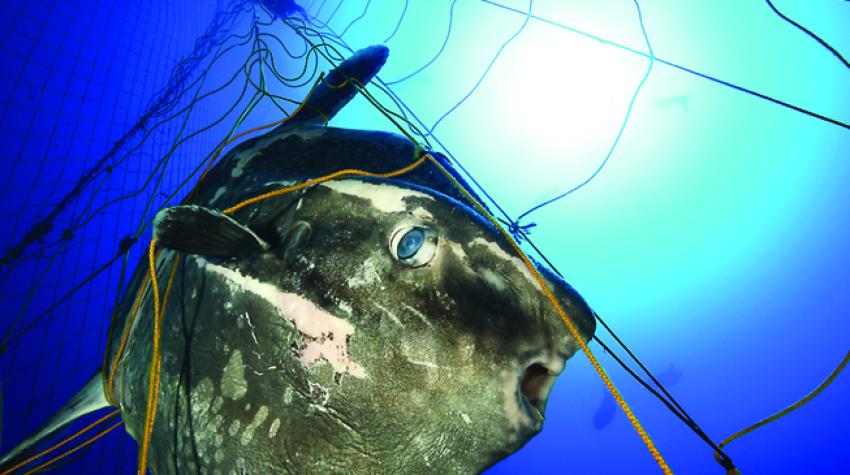May 2017, Nos. 1 & 2 Volume LIV, Our Ocean, Our World
"The problems of ocean space are closely interrelated and need to be considered as a whole." So says the preamble to the United Nations Convention on the Law of the Sea-and never were those words more apt than in relation to the challenges we face today.
As global actors, the European Union (EU) and its member States share the fundamental obligation and responsibility to protect, conserve and sustainably use the oceans and their resources. We know that healthy and productive oceans are key to long-term sustainable development. We believe there is an urgent need to take action and tackle social, economic and environmental issues so that the oceans, the seas and their resources can support the livelihoods of coastal communities and continue to provide for future generations.
We are therefore strongly committed to the successful implementation of the United Nations 2030 Agenda and the achievement of Sustainable Development Goal 14 (SDG 14), which, for the first time, calls on the global community to "conserve and sustainably use the oceans, seas and marine resources for sustainable development".
By including healthy fisheries among the SDGs, the United Nations and global civil society have affirmed the importance of fisheries for global food security and employment, as well as their contribution to alleviating poverty. Despite our international commitments, however, fish stocks in many areas continue to be overexploited. Urgent action at both the national and regional levels is needed to tackle this problem, and in particular to preserve stocks and restore them to sustainable levels.
Such action should involve implementing science-based management measures; applying a precautionary approach when scientific knowledge is limited; stepping up the fight against illegal unreported and unregulated fishing, including through the use of catch documentation schemes and port State measures; and managing by-catch and discards.
The EU is leading the way in the creation of a stronger system of ocean governance. On 10 November 2016, the European Commission and the EU High Representative set out a joint agenda for the future of our oceans, proposing 50 actions for safe, secure, clean and sustainably managed oceans in Europe and around the world.
One of the priorities of my mandate as European Commissioner for Environment, Maritime Affairs and Fisheries is the implementation of the reformed Common Fisheries Policy (CFP),1 which entered into force in January 2014 with the aim of ensuring that fishing and aquaculture are environmentally, economically and socially sustainable. Not only does this provide EU citizens with healthy and traceable food, it also fosters a dynamic fishing industry and ensures a fair standard of living for fishing communities.
The Policy is designed to manage a common resource sustainably. It gives all European fishing fleets equal access to EU waters and fishing grounds. It sets rules for making European fishing fleets sustainable and for the conservation of fish stocks. In particular, CFP sets out a legal obligation to reach maximum sustainable yield (MSY) as soon as possible and by 2020 at the latest, ensuring that fishermen only take as much from the sea as can be sustained in the long term.
To do this, the European Commission proposes annual total allowable catches (TACs) for most commercial stocks in EU waters. The proposed quantities are set with a view to ensuring MSY, based on scientific advice and economic analysis from independent bodies. Once TACs have been set, EU member States are assigned national quotas, complemented by technical measures, in particular to help protect fragile habitats.
In addition, almost all important stocks and fisheries are maintained by means of multi-annual plans that set the goal for fish stock management in terms of fishing mortality and/or targeted stock size. Some plans also set out a detailed and tailor-made road map for achieving the objective. Some multiannual plans include fishing effort restrictions as an additional instrument to TACs and specific control rules.
Yet the impact of fishing on the fragile marine environment is difficult to fully grasp and foresee. This is why CFP adopts a precautionary and an ecosystem approach that takes into account the impact of human activity on all components of the ecosystem and seeks to ensure that fisheries and aquaculture activities do not contribute in any way to the degradation of the marine environment. In particular, it seeks to make fishing fleets more selective in what they catch, and to phase out the wasteful practice of discarding unwanted fish. By 2019, all European fisheries will be covered by the landing obligation, prohibiting the practice of throwing unwanted catches back into the sea.
The first signs that our work is paying off are already being seen. Fisheries in Europe are making steady progress towards our sustainability target. In the North-East Atlantic, including the North and Baltic Seas, the push towards sustainability is both widespread and visible. While in the early 2000s most stocks were overfished, today more than half of the assessed stocks are managed sustainably, including many of the largest and commercially most valuable stocks.
This is not just good news for fish stocks, but for fishermen as well. New European Commission data finds that, with net profit margins at 10 per cent, the EU fleet made large profits in 2014, thus increasing its economic performance significantly compared to 2008. Progress, however, has not been uniform: fish stocks in the Mediterranean and Black Seas continue to fare poorly and are still overfished. As our scientific knowledge of these seas improves, the challenges to fisheries in the area become obvious.
That is why the European Commission is taking action. From 29 to 30 March 2017, we hosted a ministerial conference in Malta on Mediterranean fisheries, bringing together ministers from EU and non-EU countries in the Mediterranean basin. The conference culminated in the signature of the Malta MedFish4Ever Declaration, which will provide a significant political push to address the alarming state of stocks and its impact on the industry and coastal communities of the Mediterranean basin over the next 10-15 years.
We know that our goals are ambitious-and that is why the European Commission is supporting member States in implementing CFP. Funds are available to help fishermen adapt to a changing environment and to support coastal communities in diversifying their economies, creating new jobs and ultimately improving the quality of life along European coasts and beyond. For the period between 2014 and 2020, the European Maritime and Fisheries Fund2 alone is making 5.7 billion euros available to member States. In addition, the European Commission is also supporting marine science under its research programme Horizon 2020.
Step by step, these instruments are taking us closer to our objective of healthy oceans and thriving coastal communities across Europe. But much more still needs to be done, and no actors can protect the ocean on their own. This is why the European Commission is working closely with its member States and seeking to cooperate with its neighbours and international partners.
The oceans are a heritage we all share. Their protection is our common responsibility. The European Union is looking forward to the Ocean Conference, to be held at the United Nations in New York from 5 to 9 June 2017, and to hosting the Our Ocean Conference from 5 to 6 October 2017 in Malta, where world leaders will gather to send a strong message of unity in the quest to save our oceans and seas and deliver high-level commitments to that end.
Notes
1 Information on the Common Fisheries Policy is available from https://ec.europa.eu/fisheries/dp_en.
2 Information on the European Maritime and Fisheries Fund is available from https://ec.europa.eu/fisheries/cfp/emff_en.
The UN Chronicle is not an official record. It is privileged to host senior United Nations officials as well as distinguished contributors from outside the United Nations system whose views are not necessarily those of the United Nations. Similarly, the boundaries and names shown, and the designations used, in maps or articles do not necessarily imply endorsement or acceptance by the United Nations.




